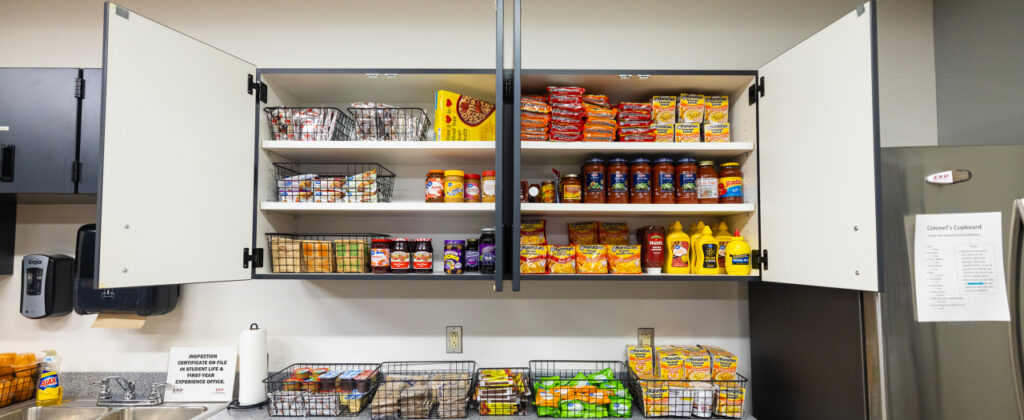Join Our Vibrant International Student Community
Every student thinking about studying abroad in the U.S. is looking for that perfect school – great academic programs, a safe place to live, welcoming faculty, staff and students, and a strong supportive network – a place to call home. EKU is that place!
Join us at EKU for a successful, memorable, and life-changing educational experience.
Experience EKU’s campus from the comfort of your home with our Virtual Tour:
Learn More
Key Resources
ELS Center – English Language Study
International students who would like to study English in the U.S. prior to attending EKU to meet our English Proficiency standard may apply to study English at an ELS center. They can apply to EKU through the ELS program and if they meet all of the admissions standards with the exception of English Proficiency, they will be offered a Conditional Letter of Admission (CLA).
Testimonials
Our current students share (in their native language) what they think makes EKU a special place to study for international students.
Contact Information
Admissions Office
Whitlock Building
Room 112
Hours
Mon – Fri: 8 a.m. – 4:30 p.m.
859-622-2106
Text: 859-544-2070
Fax: 859-622-8024
Toll Free: 800-465-9191
admissions@eku.edu
International Students - How to Apply
The application is free and only takes about 10 minutes to complete. For more details on how to apply select your admission type below.
International Students Application Info
To apply as a freshman, a student may not have attempted or completed any college or university-level coursework. Students with college-level coursework must apply as a transfer student.
Note: Students seeking an Aviation – Professional Flight degree are required to demonstrate FAA Aviation English Language Standard (AELS) Proficiency Rating Scale at the Operational Level 4. Students are required to attain this standard before acceptance of a student pilot application or issuance of a student solo endorsement. Additional details are available in FAA AC 60-28B.
Countries Exempt from the English Language Requirement: Ireland, UK, Australia, New Zealand, Canada (except Quebec), Commonwealth Caribbean: Antigua and Barbuda, the Bahamas, Barbados, Belize, Dominica, Ghana, Grenada, Guyana, Jamaica, St. Kitts and Nevis, St. Lucia, St. Vincent and the Grenadines, Trinidad and Tobago
International Transfer Students Application Info
Students desiring to transfer must have completed 24 semester credit hours with a cumulative GPA of 2.0 or higher. Students with less than 24 credit hours must also submit a complete secondary school record.
Note: Students seeking an Aviation – Professional Flight degree are required to demonstrate FAA Aviation English Language Standard (AELS) Proficiency Rating Scale at the Operational Level 4. Students are required to attain this standard before acceptance of a student pilot application or issuance of a student solo endorsement. Additional details are available in FAA AC 60-28B.
Countries Exempt from the English Language Requirement: Ireland, UK, Australia, New Zealand, Canada (except Quebec), Commonwealth Caribbean: Antigua and Barbuda, the Bahamas, Barbados, Belize, Dominica, Ghana, Grenada, Guyana, Jamaica, St. Kitts and Nevis, St. Lucia, St. Vincent and the Grenadines, Trinidad and Tobago
International Graduate Students Application Info
Graduate school applicants must have a degree equivalent to the four-year baccalaureate degree awarded by U.S. universities.
Note: Students seeking an Aviation – Professional Flight degree are required to demonstrate FAA Aviation English Language Standard (AELS) Proficiency Rating Scale at the Operational Level 4. Students are required to attain this standard before acceptance of a student pilot application or issuance of a student solo endorsement. Additional details are available in FAA AC 60-28B.
Countries Exempt from the English Language Requirement: Ireland, UK, Australia, New Zealand, Canada (except Quebec), Commonwealth Caribbean: Antigua and Barbuda, the Bahamas, Barbados, Belize, Dominica, Ghana, Grenada, Guyana, Jamaica, St. Kitts and Nevis, St. Lucia, St. Vincent and the Grenadines, Trinidad and Tobago
When to Apply
Now is the perfect time to start your EKU application! The earlier you apply for your intended start date, the more time you have to prepare to get started. Take the first step toward achieving your goals and apply today.
Note: Graduate deadlines vary by program. Program specific deadlines can be found on each program page.




